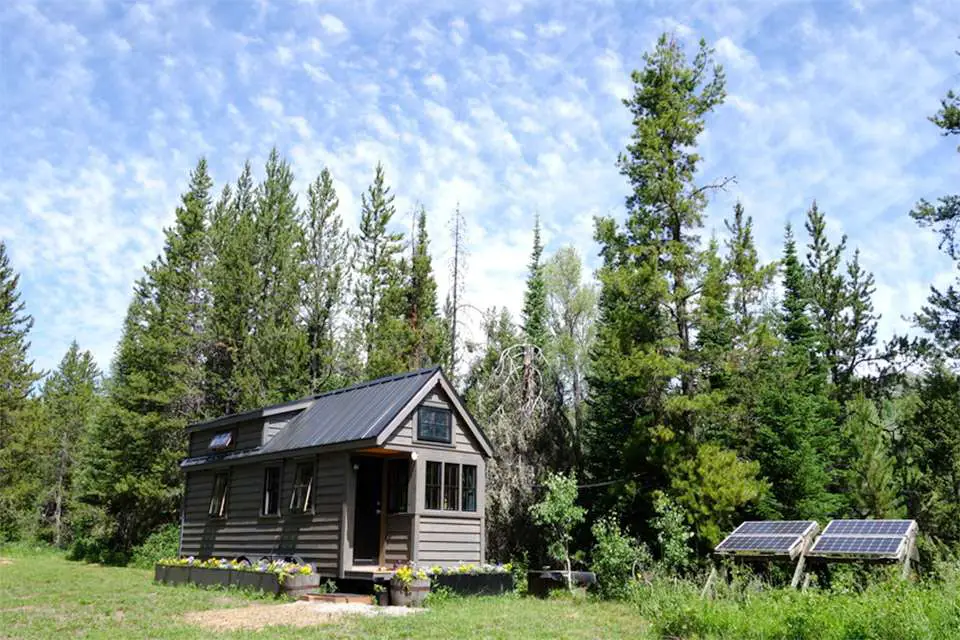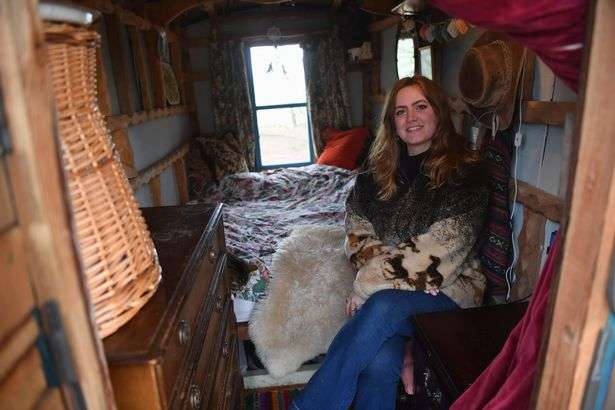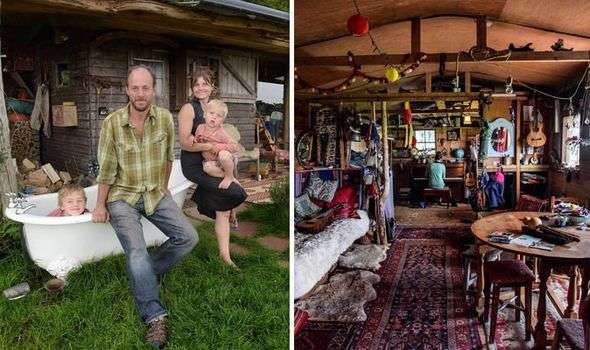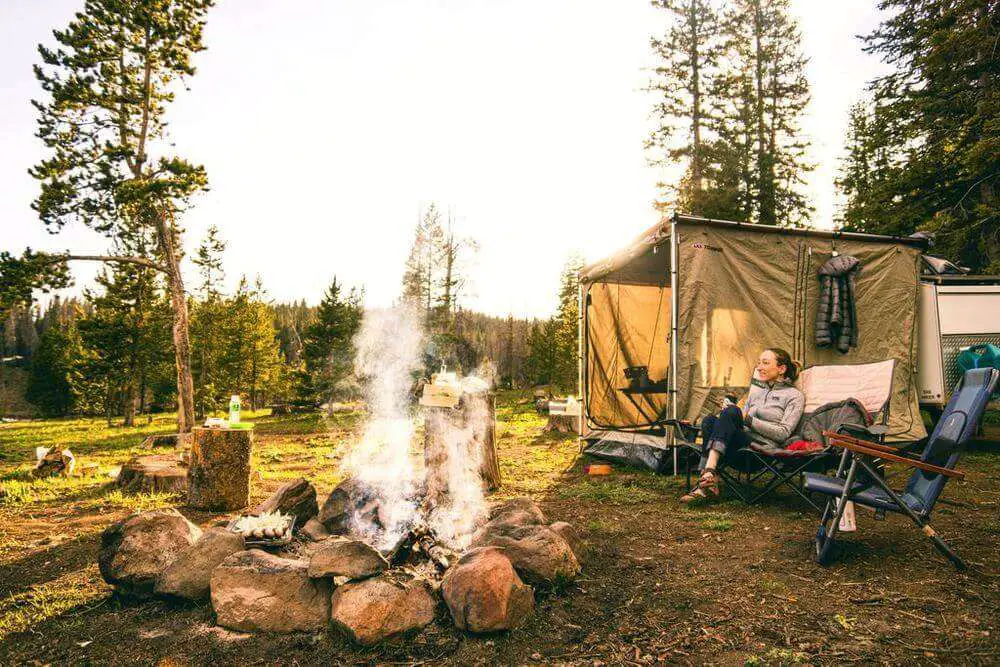Are you curious about whether it’s possible to live off-grid in the UK? In this article, we’ll explore the concept of off-grid living and discuss its feasibility in the UK. We’ll provide you with an understanding of what off-grid living entails and delve into the various aspects that make it possible or challenging in the UK. By the end, you’ll have a clearer picture of whether off-grid living is a viable option for you in the UK.

Understanding Off-Grid Living
Defining Off-Grid Living
Off-grid living refers to a lifestyle in which individuals or communities are entirely self-sufficient and do not rely on public utilities for their energy, water, and waste management needs. This means living independently from the traditional power grid and sourcing energy through alternative means such as solar power, wind power, and hydro power. Off-grid living also involves implementing sustainable practices in food production, water management, heating and cooling, and communication.
Benefits of Off-Grid Living
There are several advantages to living off-grid. Firstly, it allows individuals to reduce their carbon footprint by relying on renewable energy sources and implementing sustainable practices. Off-grid living also provides a sense of independence and resilience, as individuals are not vulnerable to power outages or fluctuations in the grid. Moreover, by disconnecting from centralized utilities, off-grid living enables individuals to lower their energy bills and have greater control over their resources.
Challenges of Off-Grid Living
While off-grid living offers numerous benefits, it does come with its own set of challenges. One of the main difficulties is the upfront cost of transitioning to alternative energy sources and implementing sustainable systems. This can be a barrier for many individuals who may not have the financial means to make the initial investment. Additionally, off-grid living requires a considerable amount of planning, research, and maintenance to ensure the systems are functioning effectively. Finally, living off-grid may involve a change in lifestyle and adapting to a more simplified and self-sufficient way of living.
Off-Grid Living in the UK
Is Off-Grid Living Possible in the UK?
Yes, off-grid living is possible in the UK. While the UK may not be known for its sunny climate or vast open spaces, advancements in technology and increasing awareness about sustainable living have made off-grid living a viable option. However, it is important to note that the feasibility of off-grid living in the UK may vary depending on factors such as location, regulations, and access to resources.
Availability of Off-Grid Options in the UK
In recent years, there has been a growing market for off-grid solutions in the UK. From solar panels to wind turbines, there are various options available for individuals interested in generating their own energy. Additionally, there are companies that specialize in providing off-grid systems and support services to help individuals set up sustainable and self-sufficient lifestyles. These companies offer a range of products, including solar panels, wind turbines, hydro systems, and storage solutions, making off-grid living more accessible to those in the UK.
Renewable Energy Sources
Solar Power
Solar power is perhaps one of the most common and widely utilized renewable energy sources for off-grid living. It involves harnessing energy from the sun through the use of solar panels. These panels convert sunlight into electricity, which can then be used to power various household appliances and systems. Solar power is particularly suitable for the UK, as even in cloudy conditions, solar panels can still generate electricity.
Wind Power
Wind power is another renewable energy source that can be harnessed for off-grid living. Using wind turbines, individuals can convert the energy from the wind into electricity. While wind power may not be as consistent as solar power, the UK has suitable conditions for wind energy generation, especially in coastal areas or high-wind regions.
Hydro Power
Hydro power involves harnessing the energy from flowing or falling water to generate electricity. While this may not be feasible for all off-grid locations in the UK, areas near rivers, streams, or other water sources can potentially utilize hydro power. Both large-scale hydroelectric systems and smaller micro hydro systems can be implemented depending on the available resources and the energy needs of the individual or community.
Harnessing Solar Power
Solar Panel Installation
To harness solar power effectively, it is crucial to install solar panels in the most optimal locations. In the UK, solar panels should ideally be positioned in areas that receive the most sunlight throughout the day. South-facing roofs or open spaces without shading are usually the best locations for solar panels to maximize energy generation.
Storage Solutions for Solar Power
One of the challenges of solar power is its dependency on sunlight, which fluctuates throughout the day and is absent during the night. To overcome this, it is essential to invest in energy storage solutions. Battery banks can be used to store excess electricity generated during the day and provide power during times when sunlight is unavailable. This ensures a continuous power supply for off-grid living, even during periods of low solar energy generation.
Utilizing Wind Power
Wind Turbine Installation
Installing wind turbines requires careful consideration of factors such as wind speed, location, and local regulations. It is essential to select an appropriate turbine size based on the available wind resource and energy requirements. Additionally, wind turbines should be positioned in areas with minimal obstructions to maximize energy production.
Wind Power Storage Systems
Similar to solar power, wind power can also be combined with storage systems to ensure a consistent energy supply. Excess electricity generated by the wind turbine can be stored in battery banks and used during periods of low wind activity. This helps overcome the intermittent nature of wind power and provides a reliable source of electricity for off-grid living.
Leveraging Hydro Power
Hydroelectric Systems
For off-grid locations situated near rivers or streams, hydroelectric systems can be a viable option for generating electricity. These systems involve the installation of turbines that are driven by the force of flowing or falling water. The energy from the water is converted into electricity, providing a consistent and renewable source of power.
Micro Hydro Systems
In areas with smaller water sources, micro hydro systems can be utilized to generate electricity. These systems are designed to produce power on a smaller scale, making them suitable for individual households or small communities. Micro hydro systems can be installed in streams or even by diverting a portion of a river’s flow to generate electricity.

Water and Waste Management
Rainwater Harvesting
Rainwater harvesting is an effective technique for collecting and storing rainwater for various purposes. Off-grid living often involves relying on alternative water sources, and rainwater harvesting can help meet the water needs of individuals or communities. Rainwater can be collected from roofs and stored in tanks or cisterns for use in household chores, irrigation, or even drinking after proper filtration.
Greywater Recycling
Greywater recycling involves reusing water from sinks, showers, and other non-toilet sources for secondary purposes such as irrigation or toilet flushing. This helps conserve water and reduces the strain on freshwater resources. Greywater systems can be installed in off-grid properties to recycle and treat water, ensuring its multiple uses within the sustainable living setup.
Composting Toilets
Composting toilets are a sustainable alternative to traditional flush toilets. They do not require a connection to a sewage system, making them suitable for off-grid living. Composting toilets break down human waste into nutrient-rich compost, which can be used as fertilizer for plants. These toilets are eco-friendly, save water, and provide a hygienic waste management solution for off-grid individuals or communities.
Food Production and Sustainable Agriculture
Permaculture Principles
Permaculture principles can be applied to sustainable food production in off-grid living. It involves designing systems that mimic natural patterns and processes to create productive and self-sustaining ecosystems. By integrating food forests, companion planting, and other permaculture techniques, off-grid individuals can cultivate a diverse range of crops, reduce reliance on external inputs, and promote ecological balance.
Vertical Farming
Vertical farming is a space-efficient method of food production that can be practiced in off-grid settings. This technique involves growing plants in vertically stacked layers or tall structures, utilizing artificial lighting and controlled environments. By maximizing vertical space, off-grid individuals can grow a significant amount of food in a smaller footprint, reducing the need for expansive agricultural land.
Aquaponics Systems
Aquaponics systems combine aquaculture (fish farming) with hydroponics (soilless plant cultivation). In these systems, fish waste provides the nutrients for plants, while the plants filter and purify the water for the fish. This symbiotic relationship allows off-grid individuals to produce both fish and crops in a closed-loop system, minimizing water use and creating a sustainable food production method.

Heating and Cooling Solutions
Biomass Heating
Biomass heating involves using organic materials such as wood pellets, wood chips, or agricultural waste to generate heat. Off-grid individuals can utilize biomass boilers or stoves to provide heating and hot water for their homes. Biomass is a renewable energy source and can be sourced locally, making it an environmentally friendly and sustainable option for off-grid living.
Ground Source Heat Pumps
Ground source heat pumps (GSHPs) extract heat from the ground and utilize it for heating purposes. These systems involve burying pipes underground, where the temperature remains relatively constant throughout the year. The heat exchanger in the GSHP absorbs the heat from the ground and transfers it to the heating system. GSHPs can be an effective heating solution for off-grid living, especially in areas with suitable geothermal conditions.
Passive Cooling Techniques
In off-grid settings, it is crucial to explore passive cooling techniques to maintain comfortable indoor temperatures without relying on energy-intensive air conditioning. Strategies such as proper insulation, shading, natural ventilation, and thermal mass can be employed to reduce the need for mechanical cooling systems. Passive cooling helps conserve energy and promotes a sustainable approach to temperature regulation in off-grid living.
Off-Grid Communication
Satellite Internet
Off-grid individuals or communities can stay connected through satellite internet services. Satellite internet utilizes communication satellites to provide internet connectivity in remote and off-grid locations. This enables individuals to access information, communicate, and stay connected to the online world even in areas where traditional broadband services may not be available.
Radio Communication
Another communication option for off-grid living is radio communication. Radio systems, such as two-way radios or ham radios, can be used to establish communication networks within a limited range. This can be particularly useful for off-grid communities or individuals who are located in remote areas with limited cellular or internet coverage.

Legal Considerations
Planning Permission
Before embarking on an off-grid living project, it is crucial to understand and comply with local planning regulations. Off-grid installations, especially those involving renewable energy systems or alternative waste management methods, may require obtaining planning permission from the local authorities. It is advisable to consult with professionals or seek guidance from relevant government bodies to ensure legal compliance and avoid potential issues in the future.
Building Regulations
In addition to planning permission, building regulations should also be taken into consideration when setting up an off-grid living arrangement. Certain building regulations may apply to the installation of renewable energy systems, waste management systems, or alternative water sources. Complying with these regulations helps ensure the safety, reliability, and sustainability of off-grid living structures.
Financial Implications
Cost of Off-Grid Living
Transitioning to off-grid living typically involves initial investments in renewable energy systems, water management systems, and sustainable infrastructure. The total cost will depend on factors such as the size of the property, energy needs, and desired level of self-sufficiency. While the upfront costs may be significant, off-grid living can lead to long-term savings on utility bills and provide a sense of independence from rising energy prices.
Economic Viability
Determining the economic viability of off-grid living requires careful consideration of factors such as the return on investment, ongoing maintenance costs, and the potential for income generation. For example, excess energy generated from renewable sources can be fed back into the grid through government incentive programs, creating a revenue stream. Additionally, growing food or producing products sustainably can contribute to self-sufficiency and potentially generate income for off-grid individuals or communities.
Community and Support Networks
Joining Off-Grid Communities
Joining or forming off-grid communities can offer several benefits for individuals interested in sustainable living. Off-grid communities provide support, resources, and knowledge sharing opportunities. By pooling resources and skills, off-grid individuals can collectively overcome challenges, share the workload, and create a sense of community within the off-grid lifestyle.
Sharing Resources and Skills
Even if one does not live in an off-grid community, establishing networks with other off-grid individuals or neighboring communities can still be valuable. Sharing resources, such as tools or equipment, and exchanging skills and knowledge can significantly enhance an off-grid living experience. Collaborating with others can help overcome obstacles, explore new ideas, and build a stronger sense of self-sufficiency within the off-grid lifestyle.
Conclusion
In conclusion, off-grid living is indeed possible in the UK. Advances in technology, coupled with growing awareness about sustainability, have made it feasible for individuals or communities to live independently from the traditional power grid. By harnessing renewable energy sources, implementing sustainable practices in water and waste management, food production, heating and cooling, and establishing alternative communication networks, off-grid living in the UK has become a viable option. While off-grid living presents certain challenges and requires careful planning and investment, it offers numerous benefits such as reduced carbon footprint, independence from centralized utilities, and greater control over resources. With the availability of off-grid options, support networks, and government incentives, more individuals in the UK can embrace a self-sustainable and environmentally friendly lifestyle.



